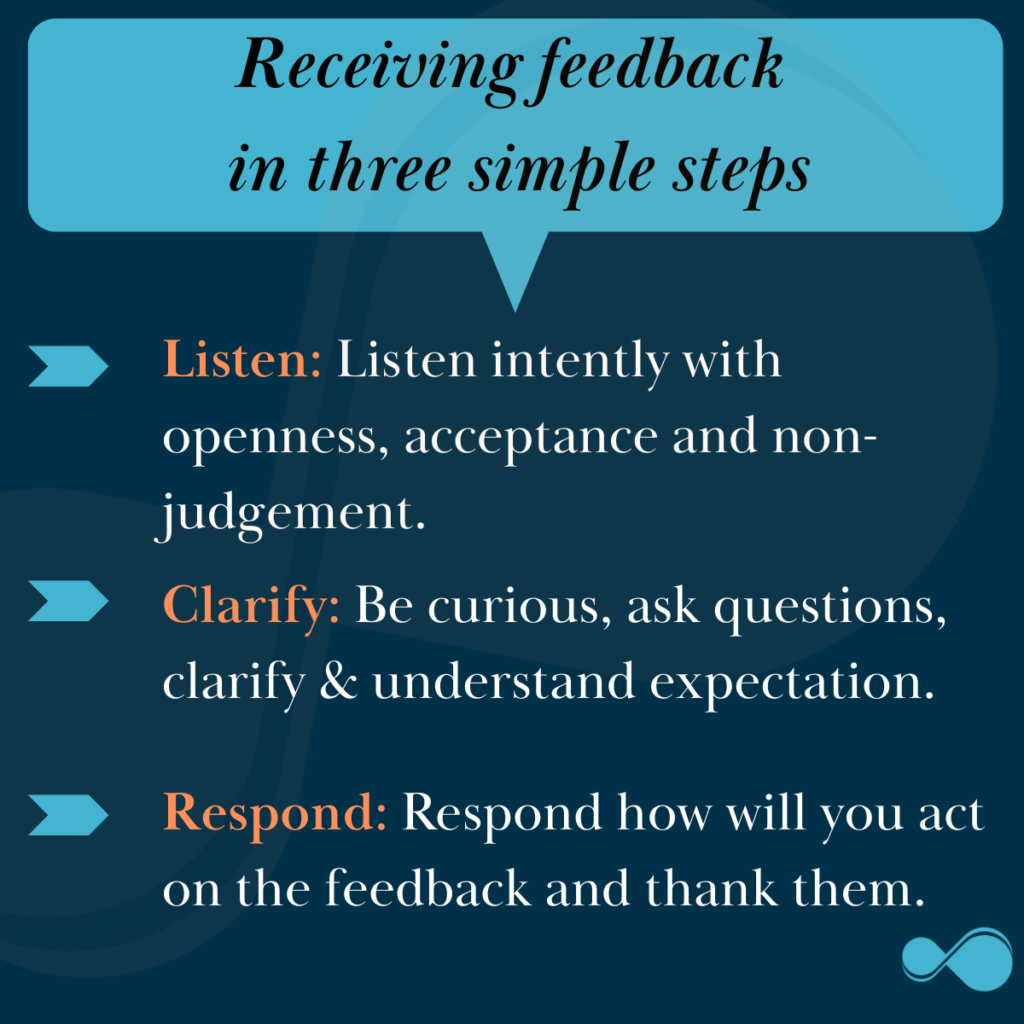Feedback is one of the tools for improving self-awareness and a road to authentic leadership. While giving feedback is a lot talked about, receiving feedback remained primarily out of the spotlight. I believe receiving feedback is essential and undoubtedly a foundational building block of an adaptive organisation. It fosters enterprise agility by promoting a more resilient and adaptive organisational culture. A culture that helps people prepare for change and prepares them to be flexible in the face of uncertainty & adversity. Learning to receive feedback promotes the stimulate the growth mindset. People with a growth mindset view failures, setbacks, challenges, and blockers as opportunities. It powers their resolve to grow by adapting and learning from feedback, mistakes and experiments.
As a leader, manager or employee, you might need to give or receive feedback on the job, and when you do it effectively, it benefits to person’s or company’s growth.
“I think it’s very important to have a feedback loop, where you’re constantly thinking about what you’ve done and how you could be doing it better.”
Elon Musk
Getting and learning from that feedback is the best way to grow as a leader. Feedback is a much better teacher than a book, a journal, an article, a training, a speech or a TED talk speech.
How to receive feedback?
Providing and learning how to receive feedback is equally important to continue your growth within the workplace; it’s a skill you can develop with practice. Be sure to ask open-ended questions from people who care about your performance and can accurately evaluate your work performance.
Here are some ways to accept constructive feedback:

Ask for feedback often.
You can learn, improve and avoid surprises by being more open to suggestions and proactively seeking feedback. The best time to request feedback is soon after you complete a task, project or presentation, start a new role, or attend or host a meeting. It’s good to receive feedback more often, like a continual process in place of just one or two formal sessions a year. One must remember that obtaining feedback is an ongoing process, not just a one-off intervention. You’ll need more feedback to grow, change and improve, and there is no better time than now.
Be receptive to constructive feedback.
Listen carefully to the feedback without interrupting, and listen to what they say, not what you assume they will say. You can absorb more information if you concentrate on listening and understanding instead of reacting defensively.
Look for ways to change your behaviour that might lead to better outcomes. Use all forms of feedback positively, and be open and receptive to ideas & suggestions.
Think of given feedback as an opportunity to grow rather than mere criticism about you. It will help you grow, improve, advance and achieve your personal and organisational goals. Be receptive to new ideas and differing opinions; more often than not, there is more than one way of doing something. Others may have a different viewpoint than yours, and you may learn something worthwhile by listening to them.
Reflect on feedback received
Listen intently to the feedback, reflect, and process the feedback before making the necessary changes. Then, write it down, create goals, and make a plan for tracking your progress for improvement. Lessons that you learn from your setbacks will lead you toward success. In addition, acknowledging your mistakes allows you to forgive yourself, change the course, and try different things to move forward.
Evaluating & reflecting on given feedback is an important part of this process, so keep an open mindset and measure the value of the given feedback impartially. Your response is your choice, but before discarding or ignoring the feedback, consider the consequences well. If you are unsure, seek a second opinion.
Be thankful for the feedback and those who give it.
Acknowledge, appreciate and thank the person who offered feedback, and show them you value their feedback and will consider it. Your body language and tone of voice often speak louder than words. Show a positive attitude, and provide your undivided attention to show your appreciation.
Share your ideas for improvement to assure them that you intend to consider their advice. By appreciating, you demonstrate to others that you welcome their feedback, and they will be more willing to approach you in the future.
“Criticism may not be agreeable, but it is necessary. It fulfils the same function as pain in the human body. It calls attention to an unhealthy state of things.”
Winston Churchill
References:
Giving and Receiving Feedback: Definition and Examples | Indeed.com
How to receive feedback | Scrum.org
How to get better at receiving feedback | (ted.com)
Giving and receiving feedback | Australian HR Institute (ahri.com.au)
